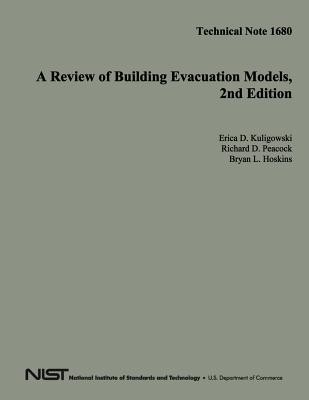
- We will send in 10–14 business days.
- Author: U S Department of Commerce
- Publisher: CreateSpace Independent Publishing Platform
- Year: 2014
- Pages: 34
- ISBN-10: 149601054X
- ISBN-13: 9781496010544
- Format: 21.6 x 28 x 0.2 cm, softcover
- Language: English
- SAVE -10% with code: EXTRA
Reviews
Description
Evacuation calculations are increasingly becoming a part of performance-based analyses to assess the level of life safety provided in buildings. In some cases, engineers are using back-ofthe- envelope (hand) calculations to assess life safety, and in others, computational evacuation models are being used. This paper presents a review of 26 current computer evacuation models, and is an updated version of a previous review published in 2005. Models are categorized by their availability, overarching method of simulating occupants, purpose, type of grid/structure, perspective of the occupants, perspective of the building, internal algorithms for simulating occupant behavior and movement, the incorporate of fire effects, the use of computer-aided design drawings, visualization methods, and validation techniques. Models are also categorized based upon whether they simulate special features of an evacuation, including counterflow, exit blockages, fire conditions that affect behavior, incapacitation of the occupants due to toxic smoke products, group behavior, disabled or slower-moving occupant effects, pre-evacuation delays, elevator usage, and occupant route choice.
EXTRA 10 % discount with code: EXTRA
The promotion ends in 19d.20:15:31
The discount code is valid when purchasing from 10 €. Discounts do not stack.
- Author: U S Department of Commerce
- Publisher: CreateSpace Independent Publishing Platform
- Year: 2014
- Pages: 34
- ISBN-10: 149601054X
- ISBN-13: 9781496010544
- Format: 21.6 x 28 x 0.2 cm, softcover
- Language: English English
Evacuation calculations are increasingly becoming a part of performance-based analyses to assess the level of life safety provided in buildings. In some cases, engineers are using back-ofthe- envelope (hand) calculations to assess life safety, and in others, computational evacuation models are being used. This paper presents a review of 26 current computer evacuation models, and is an updated version of a previous review published in 2005. Models are categorized by their availability, overarching method of simulating occupants, purpose, type of grid/structure, perspective of the occupants, perspective of the building, internal algorithms for simulating occupant behavior and movement, the incorporate of fire effects, the use of computer-aided design drawings, visualization methods, and validation techniques. Models are also categorized based upon whether they simulate special features of an evacuation, including counterflow, exit blockages, fire conditions that affect behavior, incapacitation of the occupants due to toxic smoke products, group behavior, disabled or slower-moving occupant effects, pre-evacuation delays, elevator usage, and occupant route choice.


Reviews